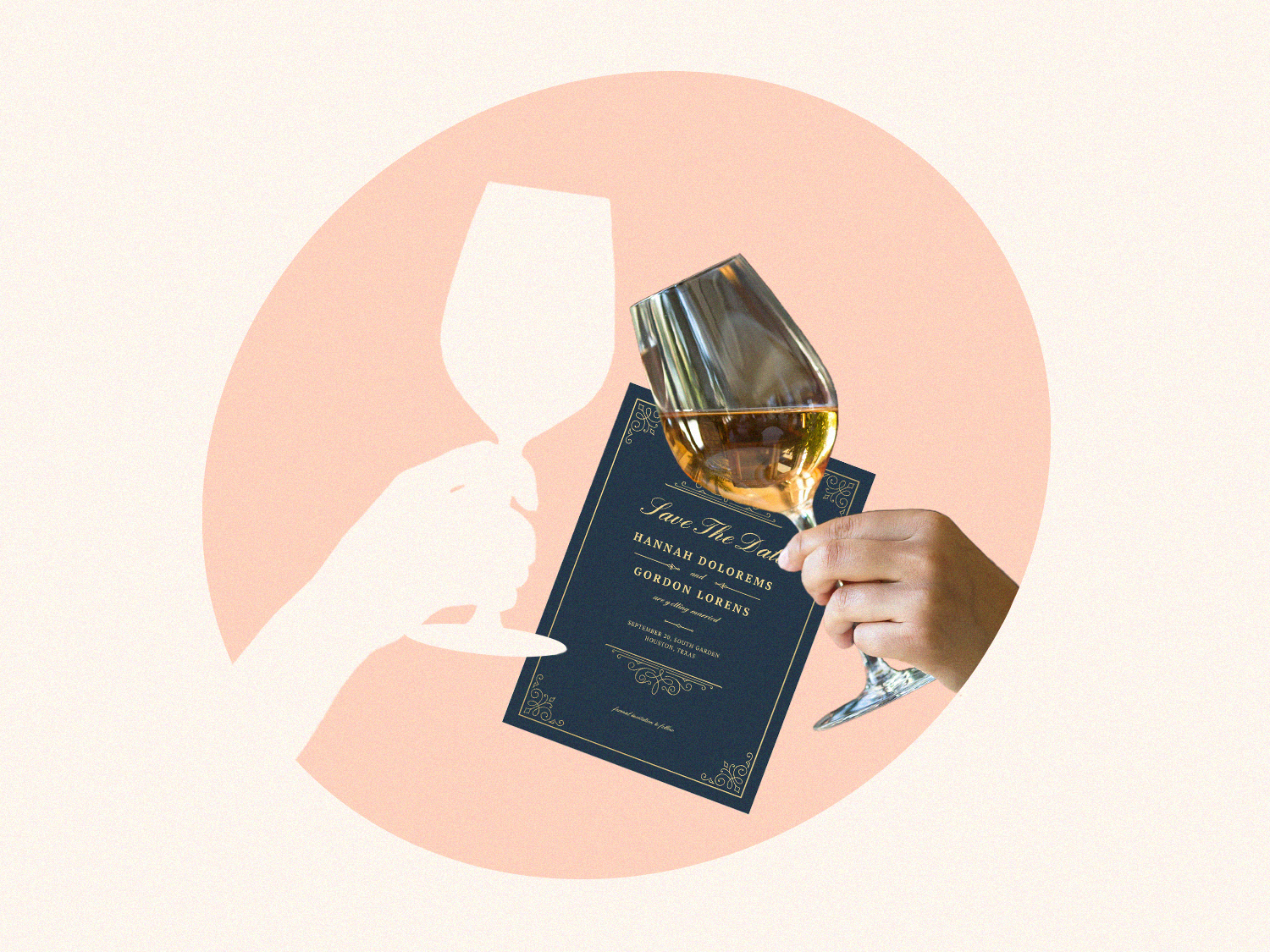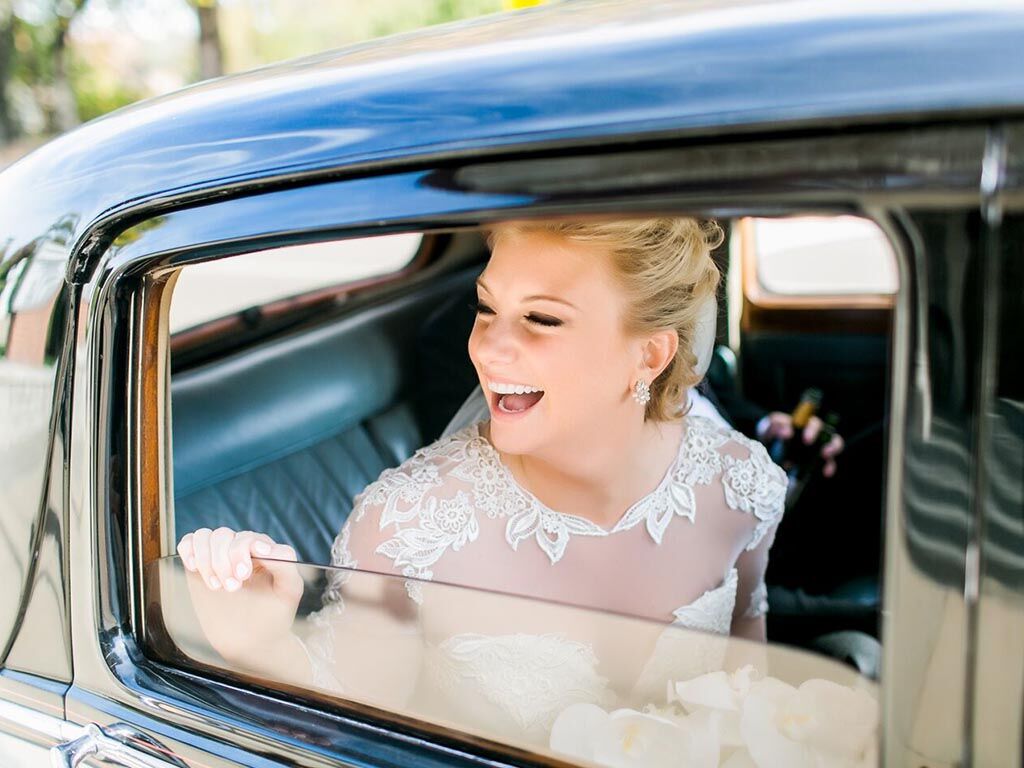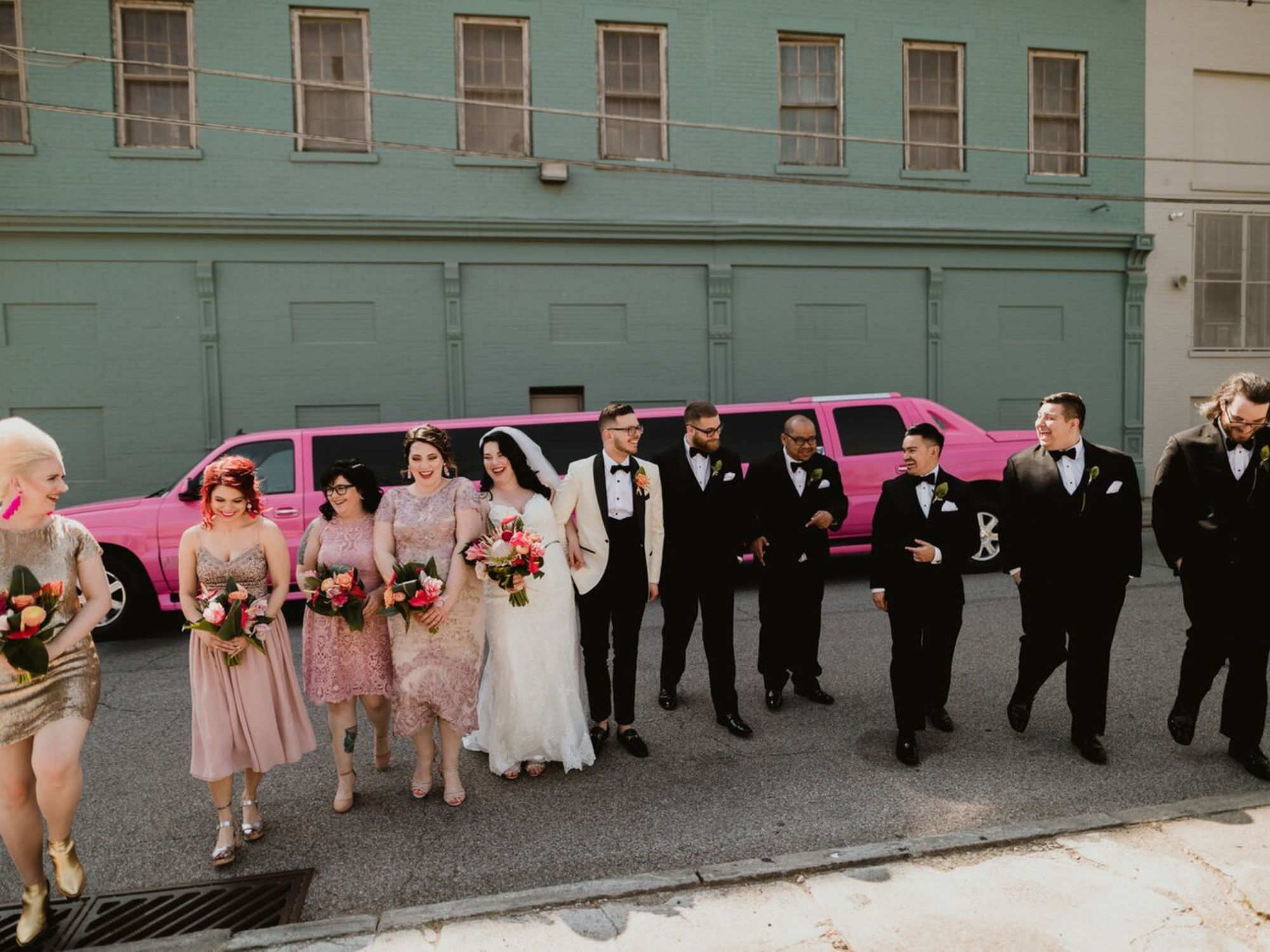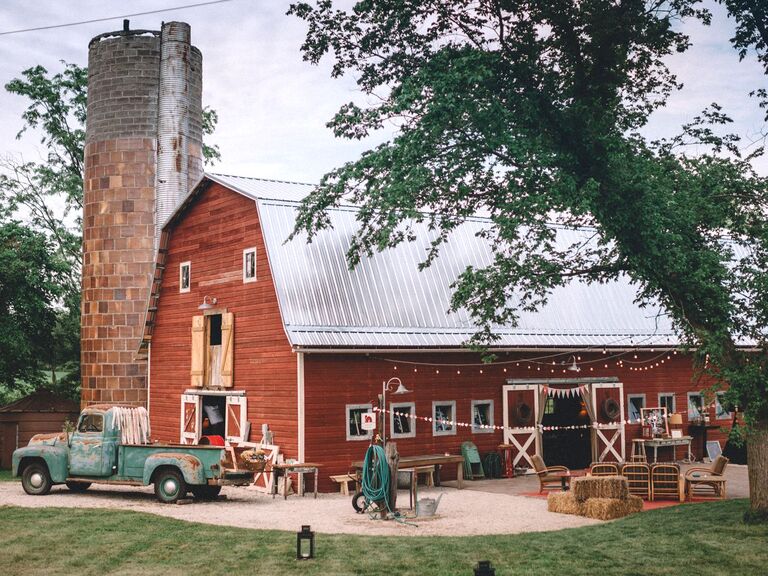How to Plan for Every Type of Allergy at Your Wedding
Just because your friend has a nut allergy doesn't mean you can't go all out with a triple Nutella crunch cake. You simply need to be extra careful. Cousins can't handle the hay? No need to forgo that stunning barn venue. Here's how to shield yourself and your wedding guests from allergies of all kinds—from dairy to dust mites—because your loved ones should get teary-eyed from your vows, not the pollen count.
Seasonal and Environmental Allergies
Pollen is everywhere (but you can still be ready).
Pollen's mission is to spread everywhere and anywhere it can, so once it's in the air, it's hard to avoid. Any guests with pollen allergies will have to do the best they can. The truth is, they've probably dealt with it before and can fend for themselves, but Tim Mainardi, MD, of Hudson Allergy offers a few ways to reduce discomfort: "Choosing a wedding location near water is helpful, as wind off lakes and oceans has a lower pollen count. Also, pollen counts are highest first thing in the morning and typically drop off in late afternoon." You heard the doctor—pick an hour later in the day if you're concerned about itchy eyes and sneezing during your outdoor vows. Another thing your guests will thank you for? Stock your venue's restrooms with over-the-counter (non-drowsy) allergy medication, like Claritin and Zyrtec, just in case. Oh, and don't forget the tissues.
Flowers aren't as hazardous as you think.
Most allergenic plants produce tiny pollen grains that get into your system and cause reactions. But according to Mainardi, it's pretty rare to experience an allergic reaction from flowers like lilies, peonies and roses, since these types produce fewer, large pollen grains that won't reach deep into the lungs and sinuses. The greenery you should steer clear of, though, especially if you're decorating with wildflower arrangements, are goldenrod and ragweed (which also offers pretty yellow flowers)—although these wildflowers don't produce pollen until later in the summer and into autumn.
Deep clean for dust.
If your venue is potentially dusty enough to cause issues, like a barn or historic building, Mainardi advises a deep clean of the space one or two days before the event (versus the day of). This is due to the fact that the dust mite allergen is fairly heavy and settles on the ground and floor. So people with dust mite sensitivity experience the worst symptoms immediately following a deep clean because the settled dust gets picked up off the floors. And if you can, use HEPA (which stands for high-efficiency particulate air) vacuums or air purifiers, which not only pick up the usual suspects, but also trap those pesky, mircro-size particles that trigger irritating reactions.



Food and Drink Allergies
Bring it up early.
It's your wedding menu, so if someone has a food allergy, you don't need to cater to their limitations. Instead, the most important thing is to be up front with your guests so you can get started planning a menu that's safe and delicious for everyone. On the RSVP cards or through your wedding website, ask guests to inform you of any food allergies or dietary concerns, then address each one on a person-to-person basis. If someone has a gluten allergy, you don't need to have a mini spelt cake just for them (unless you really want to). Just make sure there are scrumptious alternatives for anyone who can't partake. Definitely talk to your caterer about their plan to use gluten-free (or nut-free, dairy-free—you get the idea) equipment and keep it separate and sanitary, and include small signs for what's what when dinner is served.
Take caution with hors d'oeuvres.
Mainardi says cocktail hour can be one of the trickiest moments for those with food allergies, since passed appetizers are often rolled, wrapped or just too small to tell what's in them, thereby hiding potential allergens. A delicious puff pastry pocket could conceal brie cheese and toasted walnuts—sure, it sounds delicious, but that's a huge red flag for the nut-averse. "Knowing any of your guests are allergic to something and communicating that to the chef or caterer, especially the waitstaff, can go a long way to prevent allergic reactions," Mainardi says. See if small signs with ingredients can perch on appetizer trays as well so people know what they're eating without having to worry.
Still worried about allergies? Here's what to do if you break out in hives on your wedding day.





















